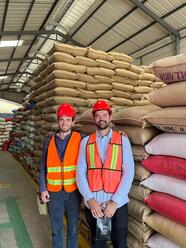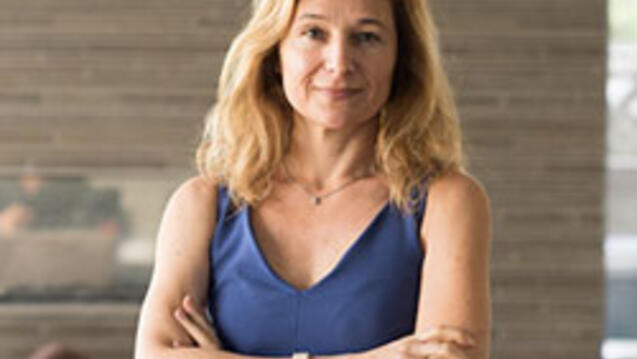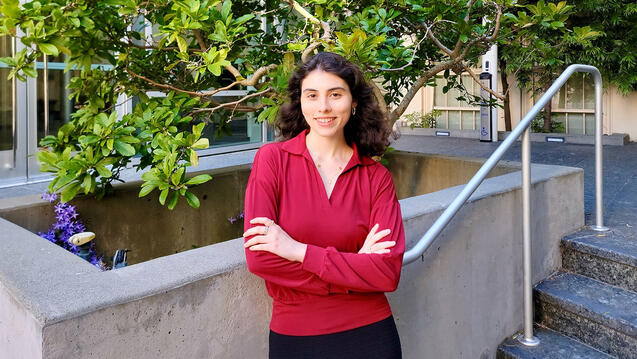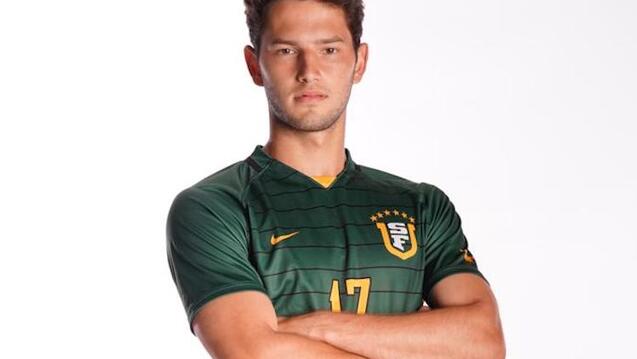
Turning Data into Solutions: Professor Andrew Hobbs’ Work in Development Economics
Professor Andrew Hobbs brings a unique blend of rigorous academic research and practical field experience to the International and Development Economics (IDEC) and Applied Economics programs at USF. His work spans climate adaptation technologies, agricultural insurance innovations, and community focused solutions that address some of the most prominent challenges facing smallholder farmers in developing countries.
Professor Hobbs’ research currently centers around index insurance—a promising approach to protecting farmers from weather-related losses. Unlike traditional insurance that requires individual claim investigations, index insurance uses regional data to automatically trigger payouts when certain thresholds are met.
“The advantage of index insurance is that there's no need to file claims or investigate them,” explains Professor Hobbs. “It makes a lot more sense for smaller farmers, whose premiums are often too low to justify the cost of investigating individual claims.”
Building on this, his ongoing work involves optimizing insurance zones, particularly in East Africa and Kenya, to identify the ideal geographic scope for these programs. By combining satellite data for zone creation with actual crop yield measurements, Professor Hobbs— often in collaboration with IDEC students— is helping address a critical gap in existing research: balancing accuracy with cost-effectiveness. His research extends beyond technical design to explore how farmers can better comprehend both the benefits and limitations of index insurance through videos, games, and other educational methods.
One of Professor Hobbs’ most memorable research experiences took place on Guatemalan coffee farms, where he partnered with a vision-focused NGO to test whether providing glasses to coffee harvesters could improve productivity. The premise was straightforward: coffee harvesting requires precise vision to pick berries, and previous research on tea pickers had shown positive results.

Working alongside IDEC students, Professor Hobbs conducted a randomized controlled trial that distributed glasses to workers who needed vision correction. The results were compelling—productivity increased significantly, making it an extremely cost-effective intervention.
“It ended up being a really cool, useful intervention that had some good benefits,” Professor Hobbs reflects. The project also demonstrates IDEC’s real-world impact: One of the IDEC students involved in the research now works full-time for the analytical partner in the study, demonstrating how the program creates pathways from academic research to professional opportunities.
What sets IDEC apart, according to Professor Hobbs, is its unique combination of diverse students and research-focused learning. “Every year we have a great cohort of students. They come from all over the world, who have done all sorts of different undergraduate majors,” he notes. “They tend to quickly form a really tight-knit community.”
This diversity enriches classroom discussions and creates a supportive environment where students help each other navigate complex economic concepts and research methodologies. But perhaps most importantly, IDEC teaches students to become independent researchers—a skill typically reserved for PhD programs.
“One thing that makes IDEC special among master’s programs is that it doesn’t just teach students economic concepts and technical skills—it teaches them how to be researchers and carry out a full project from start to finish,” Professor Hobbs emphasizes.
Professor Hobbs’ advice to incoming students centers on intellectual curiosity and strategic thinking. He encourages students to “start thinking in an open-minded way about what you'd like to study” by talking to classmates, faculty, and reading widely to understand the full range of possibilities.
His key insight is pursue research opportunities at the intersection of personal interest and institutional backing. “Go for the opportunities that are not only interesting to you but also have support from a faculty member or outside organization,” he advises. “Because I think that's where you get the most out of the resources the IDEC program has to offer.”
Professor Hobbs reminds students that a master’s thesis, while significant, is “a medium-sized commitment” that is substantial enough to be meaningful, but focused enough to be achievable. This perspective encourages students to take intellectual risks and explore new areas without the pressure of making lifelong commitments.
Through his research on climate adaptation, his commitment to practical solutions, and his dedication to student development, Professor Hobbs exemplifies the IDEC program’s mission of combining rigorous economics training with real-world impact. His work demonstrates that the most effective development economics research goes beyond academic analysis in a classroom setting—it creates solutions that are both impactful and cost-effective.


